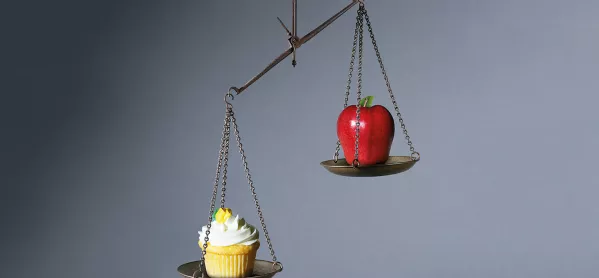- Home
- Weighing up the ethics of watching pornography
Weighing up the ethics of watching pornography


Just what exactly is wrong with internet pornography, sir?”
Steve*, an articulate Year 11 boy, asked me this question during a recent RE lesson. It was asked with a straight face, respectfully, and as far as I could tell, with integrity and conviction.
He continued: “It’s a free country, and what one teenage boy gets up to in the privacy of his own bedroom is nobody else’s business. In any case, watching consensual sex between adults actually serves society because it’s a way for people to deal with their frustrations, instead of them finding expression in sexual assault or rape.”
How would you answer this question? We’ll come to that later, but for now the question simply serves to underline the fact that none of us are teaching in a moral vacuum - a fact that presents challenges when teaching about online safety.
The world of social media and the internet that our pupils inhabit has created a new set of norms and values around how we act towards one another. For this reason, providing a list of prohibitions for what not to do online will never be enough to keep pupils safe.
If we want to truly protect our young people, we have to instead start further upstream and help them to see the bigger picture of what it means to be human. Here’s how to do that.
Start with the basics: human rights
The UN’s universal declaration of human rights is a good place to start for how we should treat one another online. The first article is especially relevant: “All human beings are born free and equal in dignity and rights. They are endowed with reason and conscience and should act towards one another in a spirit of brotherhood.”
At my school, we recently ran a series of assemblies on selected articles. Pupils seemed to respond well; there are worse ways of filling 30 weeks’ worth of assemblies.
Revisit the rules of societies
Whether you are drawing from the moral codes embedded in Classical philosophy, works of literature such as myths and fables, or the teachings of the world’s great religions, you will find certain ideas about how we should behave towards one another that emerge time and again. These are the key themes that we want to be revisiting - and examining - with our pupils.
For example, what is it about the Golden Rule (treat other people as you would like to be treated), that has preserved it for millennia?
Within the context of discussing these big ideas, we can address questions of identity, equality, liberty and justice, as well as exploring the innate human dignity that exists at the core of our being, which can so easily be eroded and undermined by the dangers we face online.
Examine the ethics
Whether we are warning pupils about online grooming, trying to get them to understand what constitutes true friendship (hint: it takes more than just clicking ‘follow’), or helping them to recognise the implications of sexting, it is never enough to merely state “don’t do it”. Pupils need to know why.
In the spirit of knowledge-based education, when it comes to answering questions like Steve’s, perhaps the best approach is to provide some old-fashioned knowledge about what online pornography can be.
Over the years, I have found the analogy “porn is like a doner kebab” quite helpful in getting students like Steve to understand what exactly is so wrong with porn. In the shop window, the kebab looks good; it might even taste nice while you consume it. But it’s not good for us, and more than that, if we knew what often went into making it, we might have a very different outlook on eating it.
Take the fact that conservative estimates place the number of slaves in the world today at about 27 million, and that most are women and children who have been trafficked into the sex trade; victims are raped, tortured and abused, all for the sake of the “teenage boy in his free country, doing no harm, exercising his right to watch porn”.
I shared this information, taken from thenakedtruthproject.com, with Steve and by the end of the lesson, he voluntarily announced, “I’m never going to use porn again.” Whether or not he followed through on his promise is not the main issue. He had begun to view what he saw online as more than victimless content, and this alone is a step in the right direction.
*Not his real name
Christian Pountain is head of RE and director of spirituality at a secondary school in Lancashire.
Want to keep up with the latest education news and opinion? Follow Tes on Twitter and Instagram, and like Tes on Facebook.
Keep reading for just £1 per month
You've reached your limit of free articles this month. Subscribe for £1 per month for three months and get:
- Unlimited access to all Tes magazine content
- Exclusive subscriber-only stories
- Award-winning email newsletters



